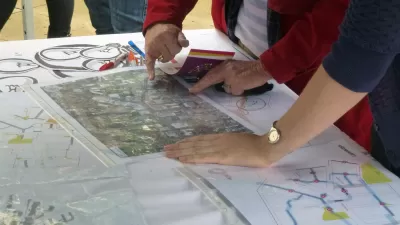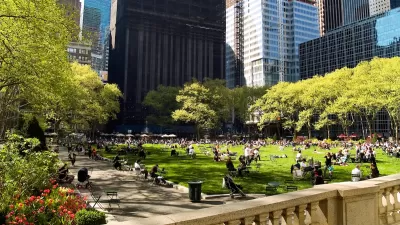Using daily and disciplined habits will improve your work efficiency. This blog provides 16 habits you can employ to help meet your 2018 work (and life) goals.

I'd always thought “self-improvement” was pop culture genre, pabulum for the masses. “Self-improvement is [a brief distraction],” says Tyler Durden in Fight Club. (I've editorialized the original statement to keep this blog family-friendly.) Yah, I'm a product of the Fight Club generation, and I spent my undergraduate and graduate years reading (mostly incomprehensible) postmodern theory. (I am Jack's [rolling eyeballs], says Fight Club's Narrator.) But people change; The Narrator changed (by shooting himself in the mouth); I've changed, by less invasive means, mind you. I've recently embraced the genre, or at least actionable elements within it.
There's a fair amount of wading through the obvious to find the insightful actionable nuggets in the genre. I thought I'd start off this new year by saving you some wading and passing along an unpolished nugget: achieving goals with disciplined daily habits. Credit lies in the book, horrendously titled, Personal Development for Smart People, by Steve Pavlina. (I am Jack’s inflamed sense of self-worth.)
Pavlina calls habits memorized solutions, tasks pushed into your subconscious. Your conscious brain has figured out how to do something so it saves energy by allocating it to your subconscious. Really, forming a habit is your brain's approach to time management. With routine tasks relegated to your subconscious, your conscious brain can focus on higher-level tasks. Thus, habits = efficiency. (But don't forget, there are bad habits! You can be efficient in your bad habits. Aim to remove the worst ones, which may, quite simply, require implementing good ones.) Now, on with the list of habits to improve your work efficiency.
(One more interruption—many of these habits can be instilled through good calendar management. Use it to its full potential. Block out time, annotate cells, colour-code, whatever helps with your efficiency execution!)
1. Set daily goals. Have three tasks you want to accomplish, then do them! Without a clear focus, you'll succumb to distractions.
2. Worst task first. To defeat procrastination, do your most unpleasant task first. Everything'll look up from there.
3. Peak times. Identify your peak cycles of productivity, and schedule your most important tasks for those times. Morning person? There's your peak time! Go after it! Work on minor tasks during your non-peak times.
4. No-comms zone. Allocate uninterruptable blocks of time for work where you must concentrate. Schedule light, interruptible tasks for your open-communication periods. More challenging projects should be contained within you no-comms blackout period.
5. Plan. At the end of the day, identify the first thing you'll do tomorrow and set out the materials in advance.
6. Good final task. End work on a positive note; take that positivity into the next day of work (and hopefully home too).
7. Mini-milestones. Complex projects should have short, immediate tasks. That'll help with feeling overwhelmed. Prioritize and execute. Focus on completing just one task at a time. Complete task, pat your back, move on to the next one.
8. Batching. Batch similar tasks together. Example, run through emails and knock off the easy ones. See point three. Batching is typically mindless-ish. Don't waste productive times batching. (I had actually typed "bathing" on my first draft. Maybe my subconscious prefers showering to bathing. That's for a different blog.)
9. Pyramid. Spend 15-30 minutes doing easy batching (point eight) to warm up; dive into your peak time (point three); wrap with a solid good final task (point six).
10. Agendas. EVERY meeting you attend, have an agenda. This'll improve meeting focus and efficiency. Assign tasks prior to meeting-wrap.
11. GO. Punch procrastination in the face by immediately taking action on a goal. Don't worry about perfection. Feel positive about completing something. (Avoid, however, sending an email you don't feel positive about. 'Nuf said.).
12. Time log. Write down what you accomplished each day/week. By simply monitoring your time you boost productivity—reflecting on time-sucks might encourage lessening those time-sucks.
13. Estimation to completion. Forecast how long you think a task will take to complete. Then push yourself to complete it in half that time. Use that peak time (point 3)!
14. Quit stuff. Those random, daily-ish email notifications from an organization-or-other? Click unsubscribe. They take more of your time than they're worth. See point 12.
15. Delay. Push aside noncritical tasks. Many don't need doing at all. Allow the ether to suck 'em away.
16. Workout. Exercise every day. Yes, every day. Something'll come up and you'll miss a day. Call that one your rest day. Working out boosts your metabolism and concentration, and gives you space to be creative, to just think. It'll help instill good habits.
17. Modeling. Find someone who is winning and interview her; adopt her attitudes, beliefs and behavior. This isn't a habit in-of-itself, but hopefully she'll have more to pass along to you.
Good luck and namaste!
Steven Snell has over ten years of professional urban planning experience with a focus on conservation. He has a master's degree in urban design and is a novelist of How Soon We Fall From Love. Connect with him on Twitter @stevenpsnell or Facebook stevenpsnell. The views expressed are purely those of the writer and may not in any circumstances be regarded as stating a position of his employer.

Planetizen Federal Action Tracker
A weekly monitor of how Trump’s orders and actions are impacting planners and planning in America.

Map: Where Senate Republicans Want to Sell Your Public Lands
For public land advocates, the Senate Republicans’ proposal to sell millions of acres of public land in the West is “the biggest fight of their careers.”

Restaurant Patios Were a Pandemic Win — Why Were They so Hard to Keep?
Social distancing requirements and changes in travel patterns prompted cities to pilot new uses for street and sidewalk space. Then it got complicated.

Platform Pilsner: Vancouver Transit Agency Releases... a Beer?
TransLink will receive a portion of every sale of the four-pack.

Toronto Weighs Cheaper Transit, Parking Hikes for Major Events
Special event rates would take effect during large festivals, sports games and concerts to ‘discourage driving, manage congestion and free up space for transit.”

Berlin to Consider Car-Free Zone Larger Than Manhattan
The area bound by the 22-mile Ringbahn would still allow 12 uses of a private automobile per year per person, and several other exemptions.
Urban Design for Planners 1: Software Tools
This six-course series explores essential urban design concepts using open source software and equips planners with the tools they need to participate fully in the urban design process.
Planning for Universal Design
Learn the tools for implementing Universal Design in planning regulations.
Heyer Gruel & Associates PA
JM Goldson LLC
Custer County Colorado
City of Camden Redevelopment Agency
City of Astoria
Transportation Research & Education Center (TREC) at Portland State University
Camden Redevelopment Agency
City of Claremont
Municipality of Princeton (NJ)






























